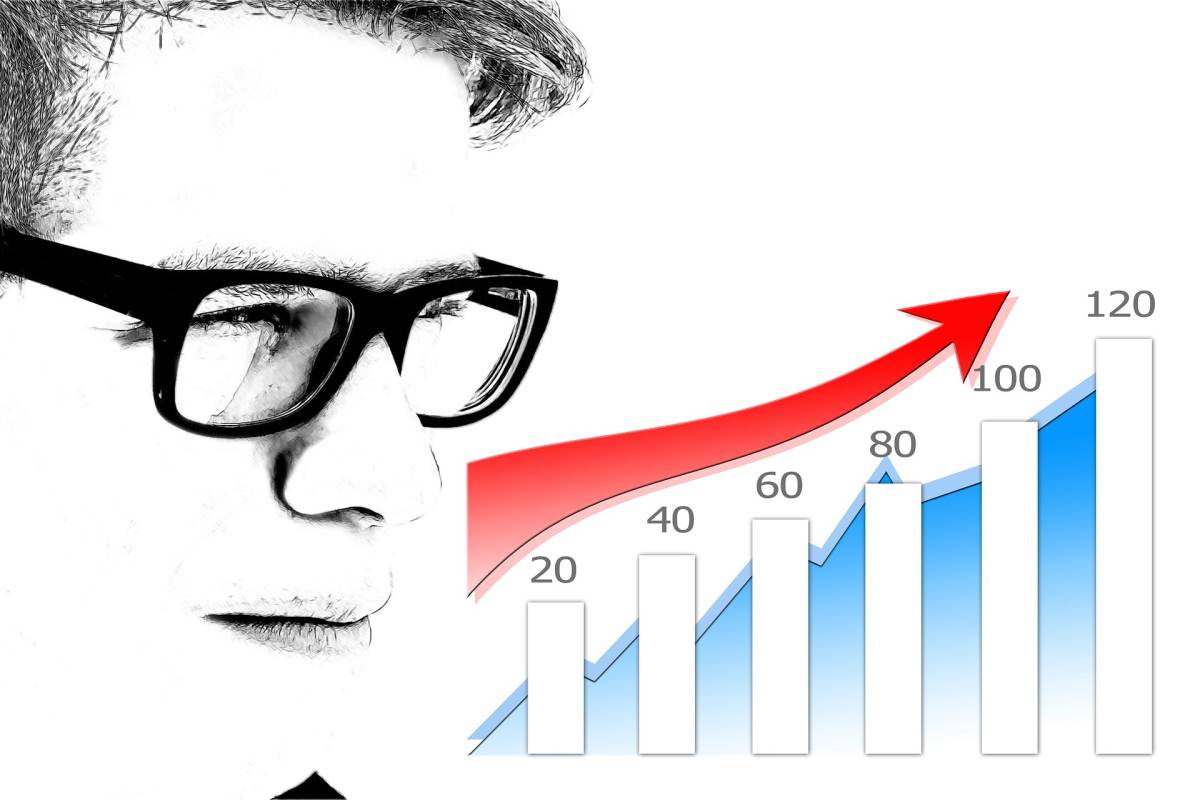
A report in the online business website Thumbtack.com reported that during the month of October, small business owners in Utah expressed declining optimism about the future. However, in southern Utah, chamber of commerce members stated they felt small business owners were more optimistic than the rest of the state.
Jon Lieber, chief economist for Thumbtack, explained that the procedure his website uses incorporates a wide variety of parameters in order to ascertain the overall level of optimism business owners have about their futures.
“Each month we ask between 15 to 20 thousand of the professionals who are active on Thumbtack to tell us about the economic environment where they are,” Lieber said. “We’re trying to figure out things like how they assess the current situation of their business, what they think their business is going to be like in three months. We ask if they’re hiring or firing workers, and we ask what their plans are for future expansion or obtaining credit down the road.”
Lieber explained that they take the scores from each state and analyze them individually to see which states are doing better or worse for small businesses. For the month of October, Utah was ranked No. 17 in the nation, a precipitous drop from the state’s high position in August, when it ranked No. 3 overall.
Lieber stated that Utah was not alone in their diminished optimism. He said that it was a nationwide pattern of declining expectations regarding the future of small businesses.
“When we asked this question in March or April, generally people were feeling pretty good about their financial situation. In addition, they were feeling pretty good about the future of their financial situation,” Lieber said.
“When we ask this question today, there hasn’t been a ton of movement in how people respond to their current financial situation, but when we ask them about the future and what they expect down the road, there’s been a pretty sharp drop off in people’s responses to that question,” he said.
Thumbtack inquires as to the opinion of respondents regarding numerous factors to gauge the overall feeling of the economic optimism: financial outlook, revenue outlook, outlook on profitability, and outlook on getting loans just to name a few. There are five responses to each question, ranging from a severely frowning face to neutral to a very happy face. The majority of the factors were listed somewhere in the neutral range, with the factor of recent hires garnering the most negative responses.
Thumbtack also lists the top five complaints that small business owners had and they ranked as follows:
- No. 1: competition from other businesses (26.5 percent)
- No. 2: access to credit (17.1 percent)
- No. 3: consumer confidence (10.3 percent)
- No. 4: uncertain economic conditions (8.6 percent)
- No. 5: taxes (7.7 percent.)
Lieber also said that most of the negative perceptions small business owners expressed had little to do with the actual business environment they operated within but more to do with the larger business picture.
“A lot of folks are really worried about macro-economic trends like interest rates going up or movements of Chinese currency or even next year’s presidential election,” Lieber said. “These factors are really weighing on the minds of small businesses and forcing them to be a bit more pessimistic about the future even though they’ve got reason to be pretty optimistic about their current situation.”
Cedar City Chamber of Commerce President and CEO Chris McCormick agreed that during election cycle years, there tends to be apprehension, but he stated that most business owners he had talked to expressed more optimism than pessimism.
“I know that almost every time there is an election you see uncertainty. That’s really common,” McCormick said. “In our area, I haven’t really heard a lot of negativity from small business other than in relation to the Affordable Care Act. Other than that, I don’t hear a lot of negative. I think people here in Cedar City are pretty optimistic about what’s going on in our economy.”
McCormick also agreed that the big picture was a prominent factor in making business owners uneasy.
“I think people are concerned what is going to be their tax burden, what is going to be the environment for business in our country going forward,” he said. “That’s definitely a legitimate concern. By the same token, what we’re seeing here in Cedar City, we’re seeing some very positive trends, and people are overall very optimistic.”
Jimi Kestin, Chair-elect of the St. George Chamber of Commerce, said that while he was not able to speak on behalf of the council, he could give his own personal views of the matter. He stated that he felt the small business economy in southern Utah was not as pessimistic as the rest of the state.
“My sense on the climate here in southern Utah, particularly in the St. George area and Washington County is that in general small business is more optimistic about the future than what you would find state-wide and certainly nationally,” Kestin said. “I think the business climate here has been very good, and the economy has been gradually improving from what was a tough few years we went through.”
Kestin says that in the big-picture scenario, there is always a certain degree of uncertainty that effects the overall business climate. However, even with larger scale worries, he says that those issues have had less influence on the environment of Washington County. He also stated that the momentum of the local business community seems to be on the side of sustained growth.
“Our feelings in the St. George area are things are good and getting better and heading the right direction as far as opportunity,” he said. “We’re seeing it in the number of new businesses that are opening and the reports that we are getting from businesses that are doing better than they were previously.”
Kestin agreed with the report that uncertainty with the government, both at the federal or state levels, was a cause for concern for many businesses. He says that federal control over so much public land was a direct source of apprehension, citing the recent BLM Resource Management Plan concerning both the Red Cliffs National Conservation Area and the Beaver Dam Wash National Conservation Area as examples.
“There’s always that question of what’s going to be coming next from the federal government to interrupt the positive direction that business is headed and that the economy is headed,” Kestin said. “I think the general feeling is if government doesn’t do anything to wreck it, things would be pretty good here.”
Lieber emphasized that beyond the macroeconomic worries, it is future economic indicators that most business owners expressed pessimism about.
“The outlook on getting credit is getting worse,” Lieber said. “The outlook for their profitability and their revenues have gotten worse a little bit, so they’re definitely feeling less positive than they were.”
Lieber also said that while that Utah’s small business pessimism was higher than normal for October, it is still too early to tell if it is a long-term pattern or a short-term aberration.
“We need to wait and see if their pessimistic outlook is going to turn into an overall downturn. All the other macroeconomic indicators are still pretty stable or growing at this moment, so it could be the case that they have a negative outlook without it translating to real economic activity,” Lieber said. “We’re going to collect a few more months of data and see what kind of conclusion we can draw.”



